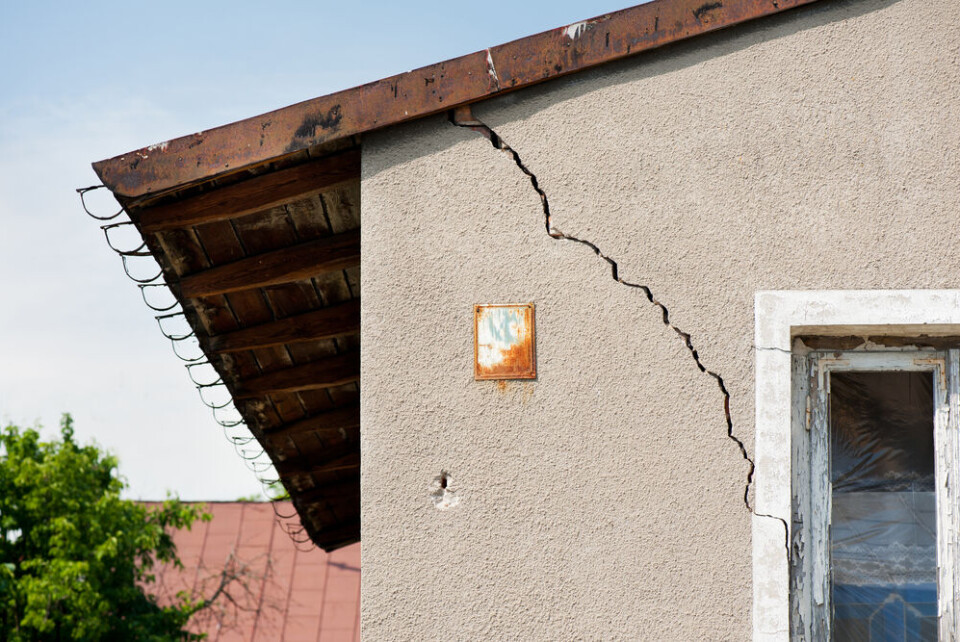-
How can I find out who the owner of a property is in France?
There are a few methods you can use to ascertain ownership
-
French property market: latest official statistics for 2025
Notaires have presented a ‘cautiously optimistic’ but still-mixed picture
-
Mutuelle fees set to increase in France next year: see by how much
New taxes on mutuelle companies denounced by insurance federation
French MP urges shrinkage report before property purchases
His report also calls for better compensation measures and easier declarations of natural disasters

A French MP has called for a diagnosis on potential ‘shrinkage’ issues to be recommended during house purchases, to decrease the risk of buyers being affected by future damages.
The diagnosis would be modelled on the current DPE energy survey diagnostics required when buying a property, and be encouraged for people buying homes where the risk of damage from clay soil shrinkage is high.
The MP also recommends all property advertisements must contain a link – or recommendation to visit – the georisques.gouv.fr website, where potential buyers can learn about the risk of clay shrinkage issues in the area the property is.
“It's incredible that a risk that has been recognised as a natural disaster since 1989, has not been the subject of more preventive measures,” said Vincent Ledoux, a member of Macron’s Renaissance party.
Other recommendations from the report look at improving the way compensation for damage from the phenomena is claimed.
Not mandatory but recommended
Mr Ledoux was tasked with submitting a report on the issue of cracked homes caused by ‘shrinkage’ (Retrait-gonflement des argiles, or RGA) in clay soil earlier this year.
The expansion and subsequent retraction of clay soil during successive droughts and rainy seasons can cause structural damage including cracks to appear in walls, and in the worst cases can make properties uninhabitable.
He delivered the report last week – which you can download in French here – which included a list of recommendations to deal with the issue.
While some – such as a €100 million yearly increase in protection against shrinkage and compensation for houses affected by it – will need time to be assessed, the recommendation for a soil diagnostic is much more straightforward to implement.
“I'm proposing that it should be optional,” the MP told Le Figaro, citing the cost and the localisation of the issue as to why it should not be a mandatory requirement.
Soil diagnostic tests can cost around €600, twice as much as their energy counterparts, and whilst RGA issues potentially affect half of French households, the issues are localised to certain main areas, such as the Massif Central mountain range.
Read more: Drought damage claims could get easier due to reforms and Météo-France
Changes to compensation payouts
The other main recommendation of Mr Ledoux’s report is a shake-up of the catastrophe naturelle requirements needed for homeowners to gain compensation from RGA damage.
Currently, communes must be declared as ‘natural disaster’ zones by the government before compensation claims can be made, leading both to long delays and a rush of claims at the same time overwhelming insurance companies.
The ‘natural disaster’ in question is often a drought that impacts an area, although these are often not declared until long after the drought itself is over.
As each commune must ask to be officially recognised as having suffered a natural disaster – with officials having to come and assess the damage – even houses that have suffered are not always offered compensation.
“To avoid bottlenecks, we need to take preventive action and anticipate these risks so that we don't have to deal with 10.5 million houses at the same time,” said the MP.
His plans include a limit on the length of time it can take to process a claim (a maximum of six months) with the full details of the report from the expert available to the claimant – including an assessment for the cost of repairs.
This should also help reduce the number of claimants who ask for a second assessment, which causes even longer delays.
One other idea is to give communes the option to ask for natural disaster rulings on a property-by-property basis, with communes providing their own analysis from insurers to send to the government, rather than waiting for the government to send in their own experts.
“If the cause of the cracks is indeed the drought, an inter-ministerial commission will have to meet to decide whether or not to recognise the state of natural disaster [in the commune],” said Mr Ledoux.
A trial recently began in 300 homes to assess four methods to reduce the damage caused by RGA – you can read our story on the trial below.
Related articles
Trials start to reduce drought crack risk in millions of French homes
France’s ‘catastrophe naturelle’ insurance system: how to claim
























